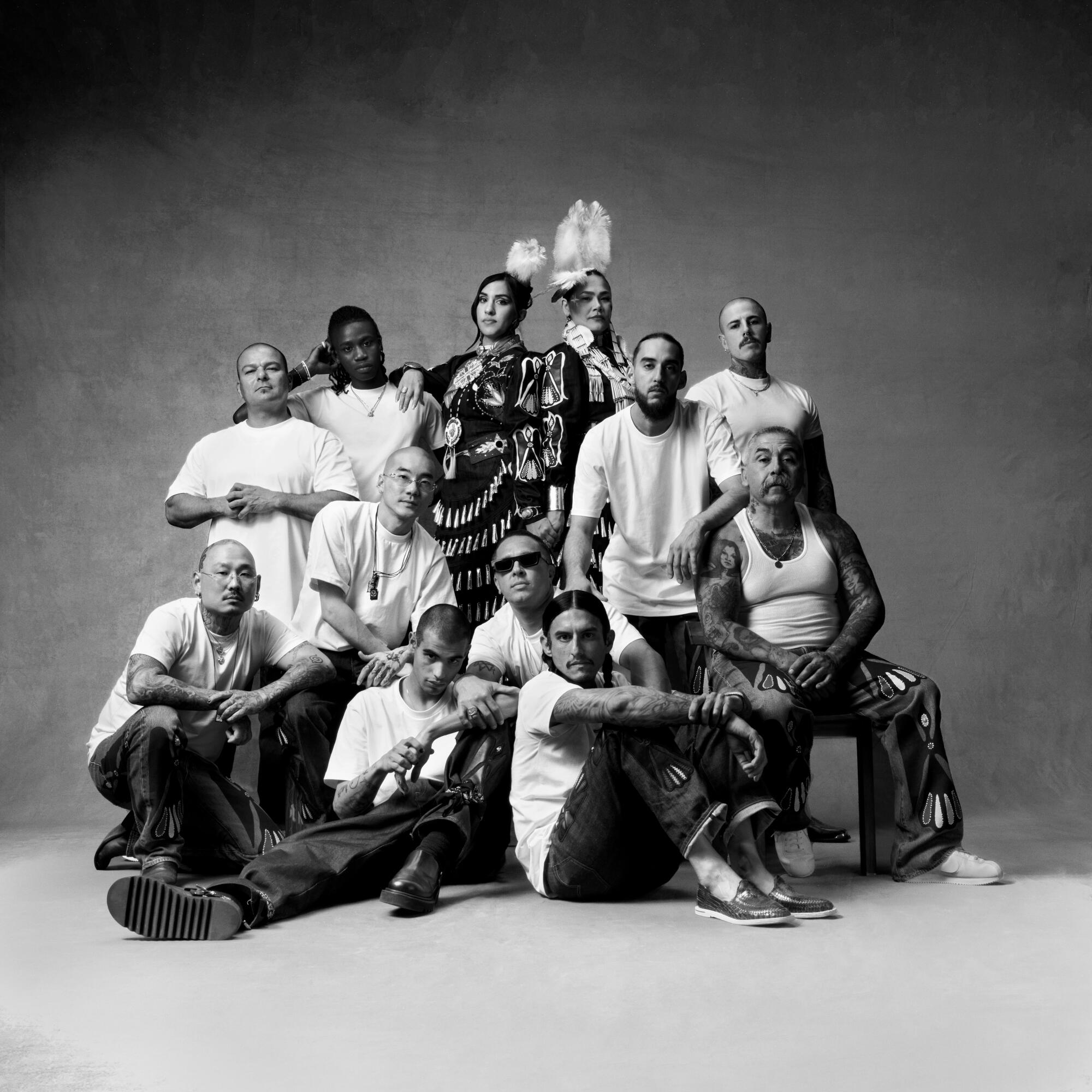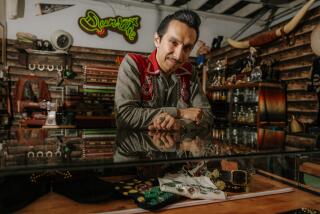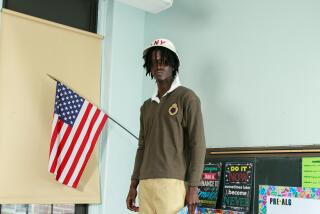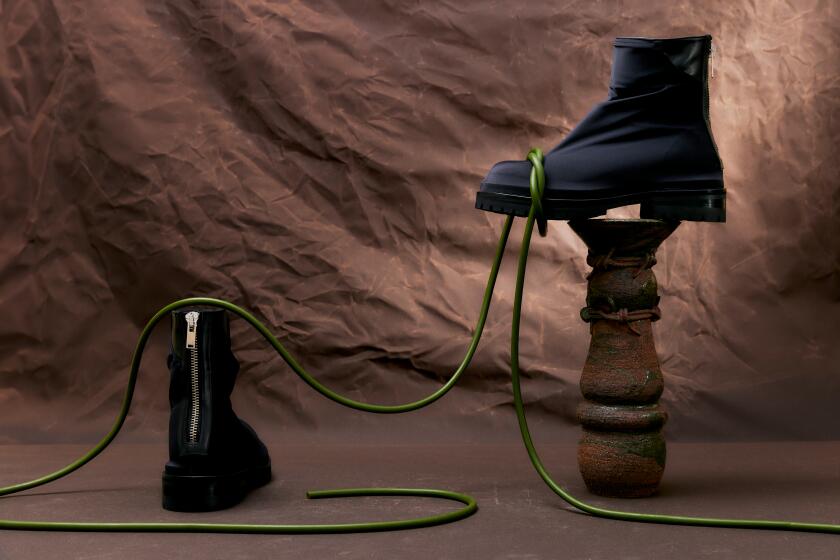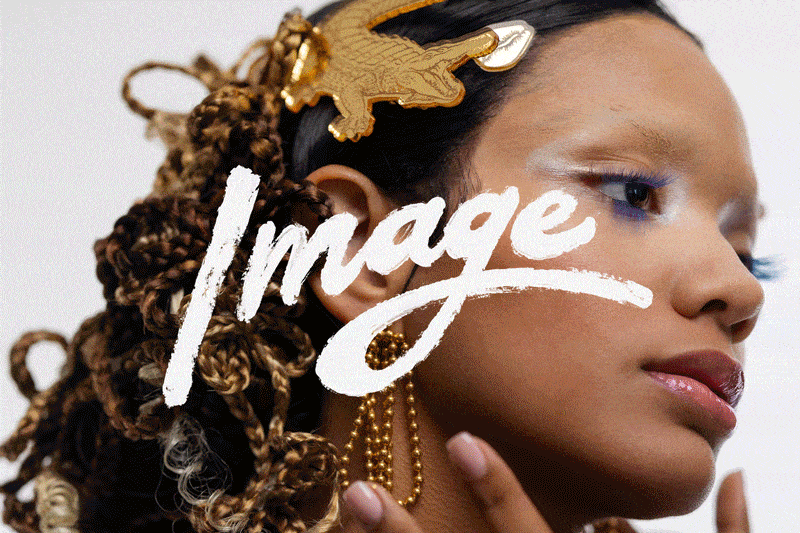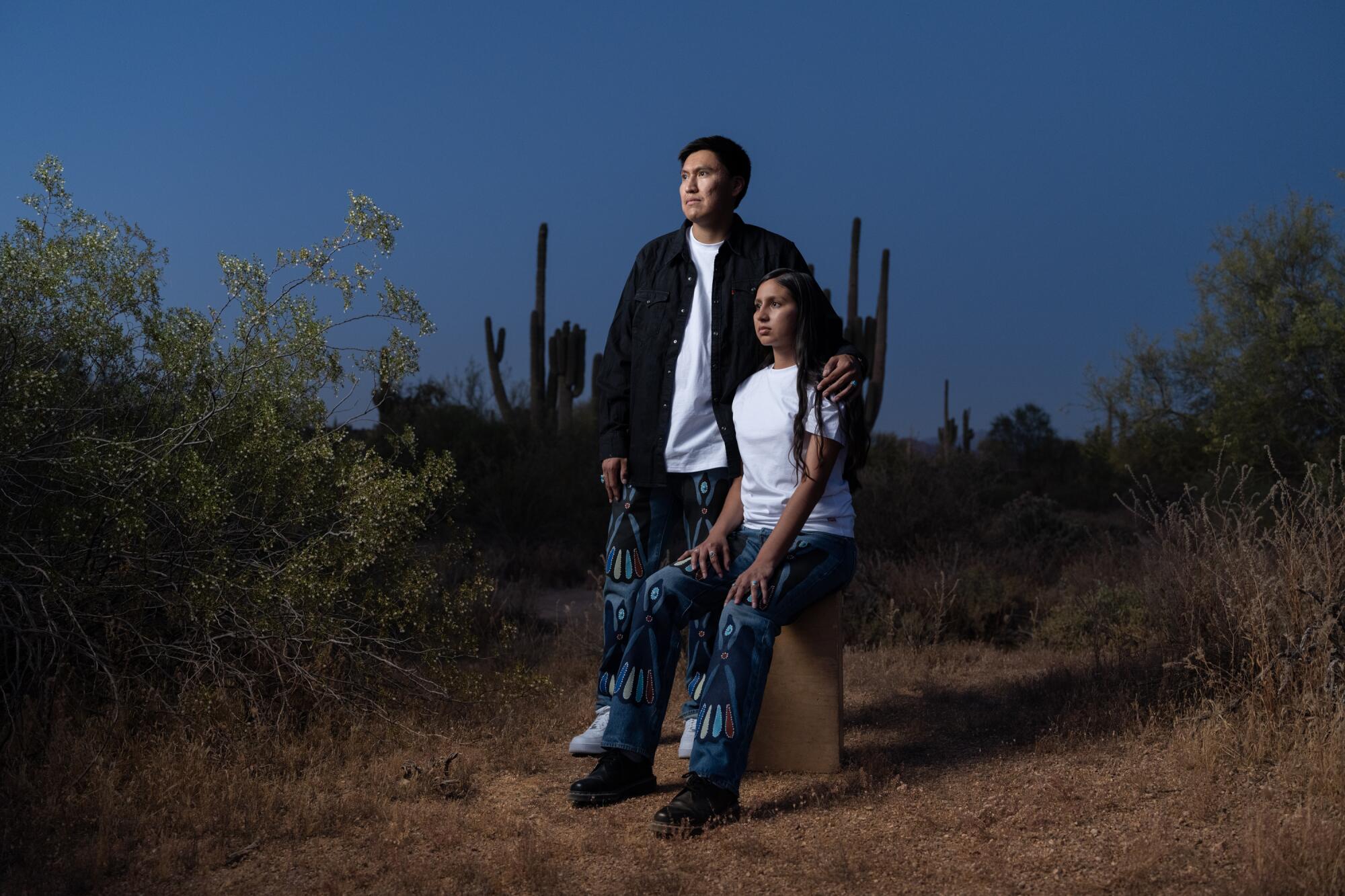
“In Loving Memory.” These are the words embroidered on the back of a Levi’s X Born X Raised trucker jacket — a tribute to Butch, the father of the brand’s founder who died in a car accident shortly after Spanto got the call to design the collection.
In loving memory. To wear these words on your back is a constant reminder, a living eulogy. Spanto’s way of keeping the energy of his father alive and physically close.
In loving memory. A celebration of Butch. But also an acknowledgment of the various memories that shaped Spanto — growing up Native, growing up in Venice. In most of these experiences, regalia reigned supreme. And that regalia always included Levi’s.
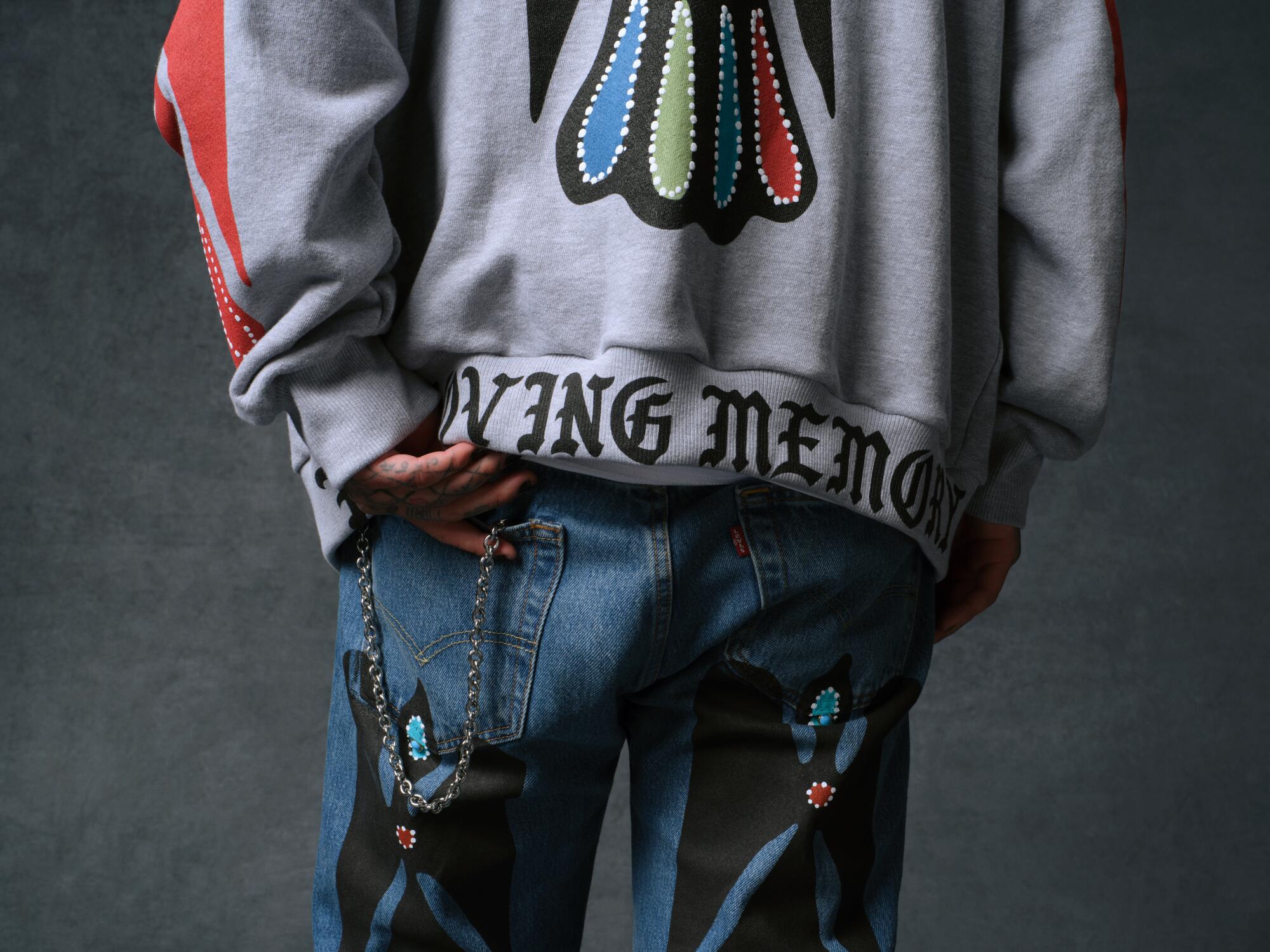
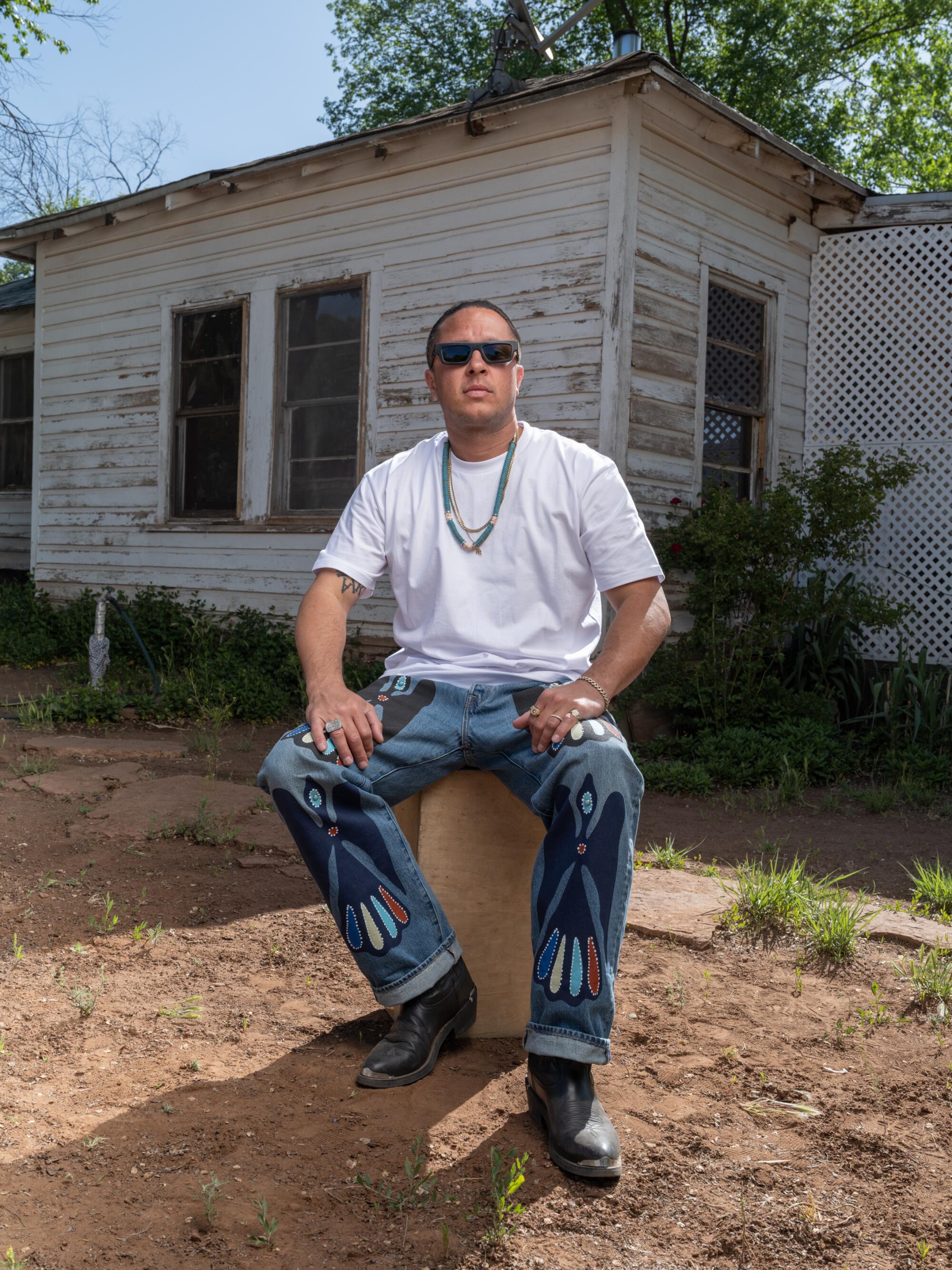
Back in the day, Spanto remembers, one of the loudest statements you could make was having a pair of creased 501s, worn with white Cortez sneakers, a white T-shirt, a razor fade and a spritz of Polo Sport. “That was a very ritualistic thing for us,” he says. Every day, he’d get up at 6 a.m., pop his oldies tape in his cassette player, pull down the ironing board built into the wall of his 1920s childhood home and start starching. “The best part of being that dude was dressing like that dude.”
Spending summers on Native American reservations with his father, learning about his Seneca heritage, the uniform was a pair of Levi’s worn over leather ankle boots, a ribbon shirt, turquoise jewelry and long hair pulled back tightly. “That style is very distinct — the only person who dresses like that is someone who grew up on the rez,” Spanto says. “It’s a very specific thing.”
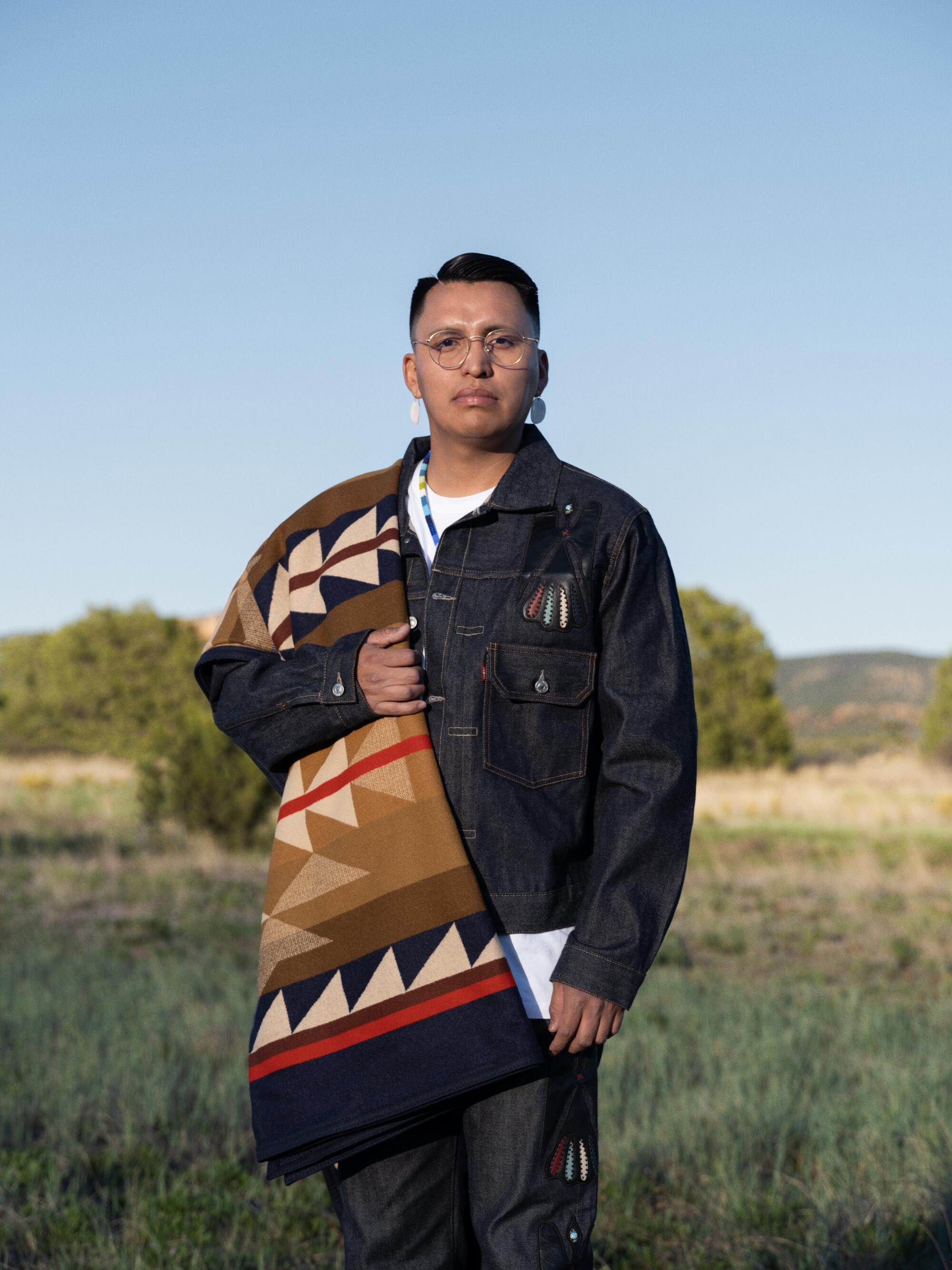
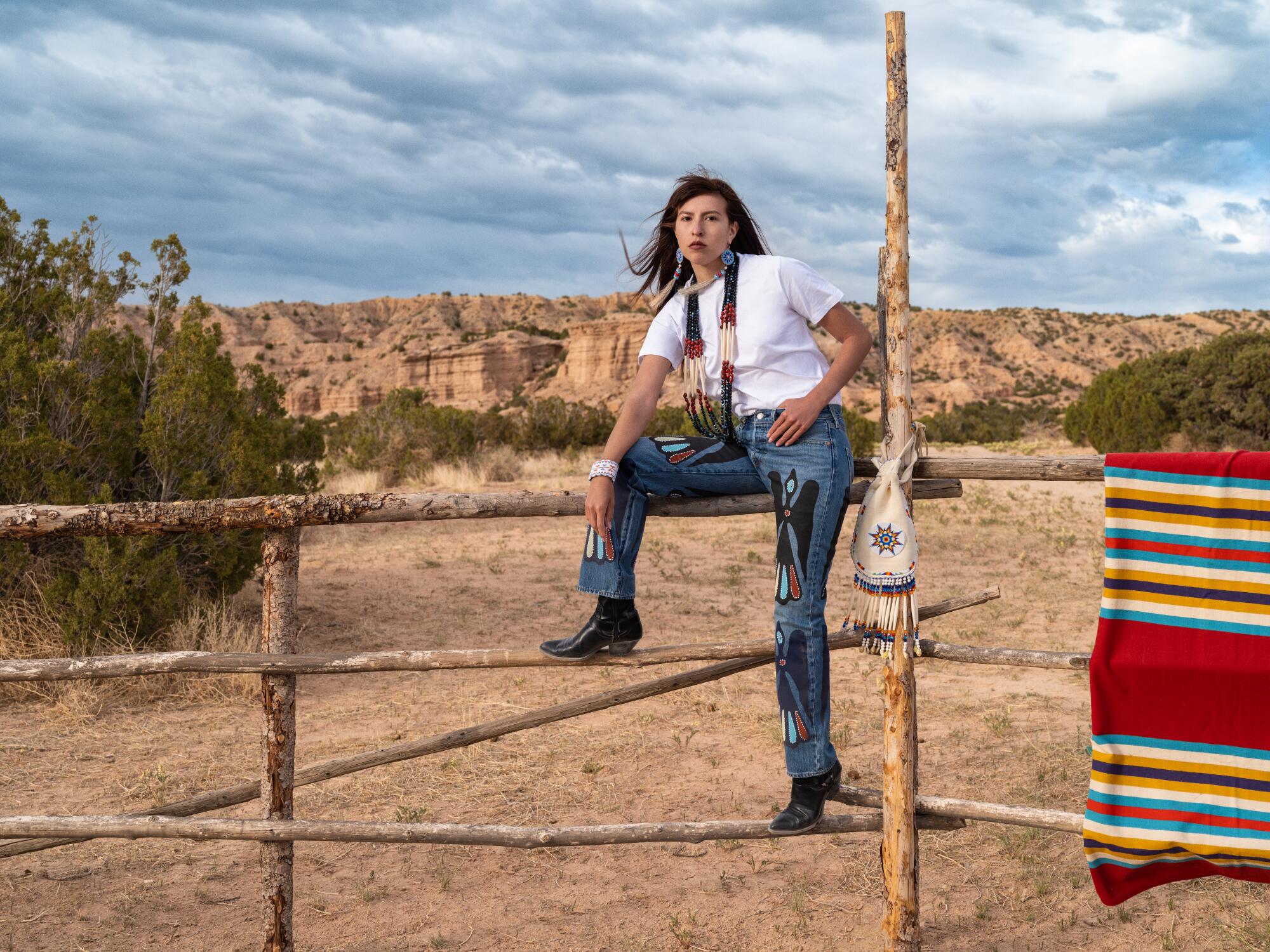
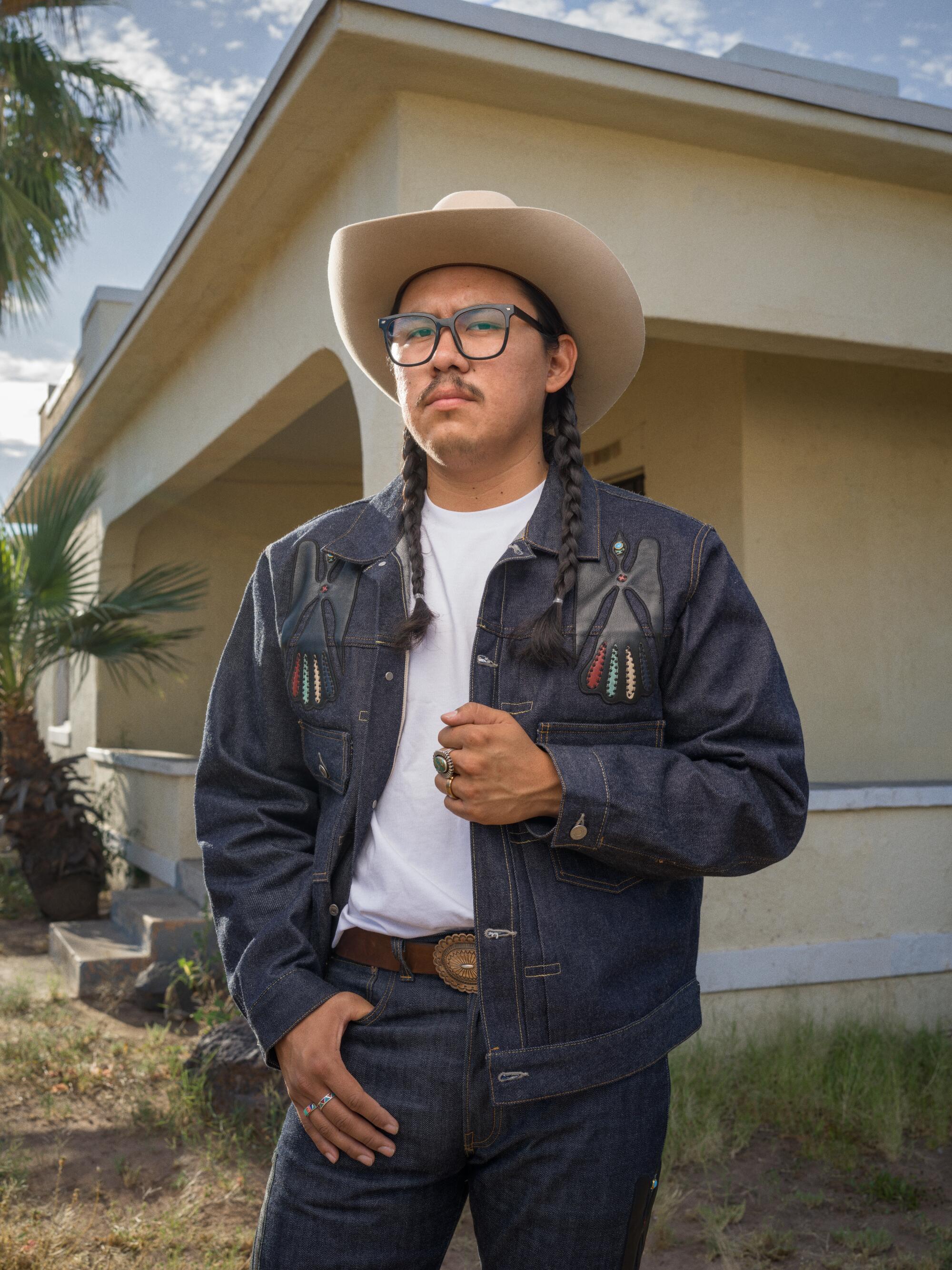
The ethos of Born X Raised is tradition — paying homage to L.A., to the culture, his friends and the older gentlemen in his Venice neighborhood that helped him become a man. The clothes are a tribute. They’re celebratory. Reverential. Inspired by Spanto and his life and times.
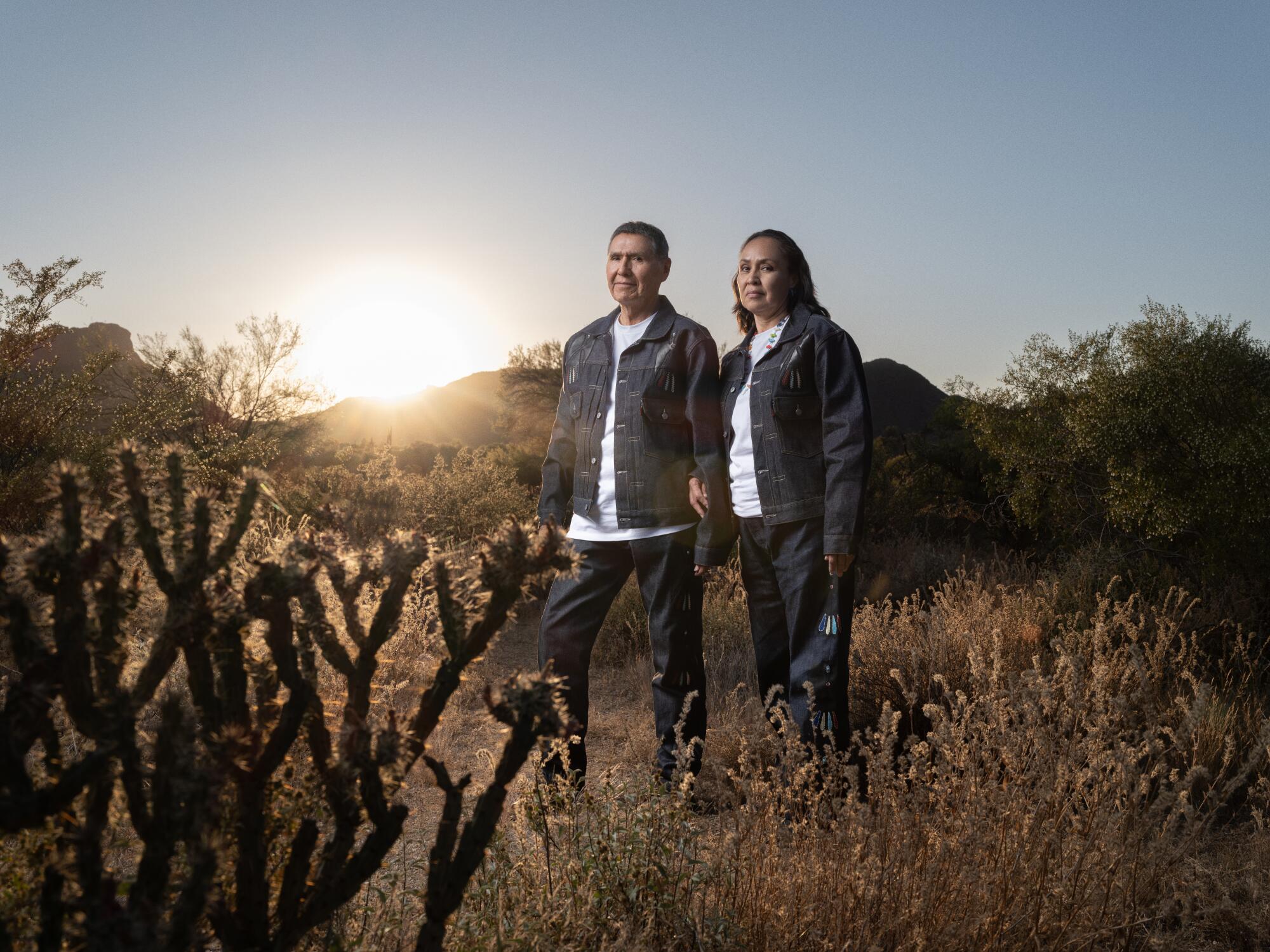
When Levi’s called to collab, it would have been easy, natural, to make it only an L.A.-inspired collection. But when Spanto flew to Memphis, where his dad moved to from L.A. in the early ’90s, to pick up any remaining belongings, complicated memories were front and center. He went back to Butch’s house and lay his head on the couch. His sister was playing Native music in the next room over, the train steamed by on the nearby tracks, gunshots fired in the distance. A painful yet reverent relationship with Butch, who wasn’t around as a consistent father figure, came flooding back. Spanto remembered spending time with him in Butch’s van, where he lived when he was homeless. Visits to the Venice Boardwalk, where he worked as a street performer. His scuffed-up hands, the way he smoked his cigarettes, the gleaming silver of his dobro guitar, his habit of showing up on a Harley every five years with a new girl on the back. Spanto reflected on the mix of feelings: shame, anger, longing and connection, pride — everything. “My dad lived on his own terms,” Spanto says. “He didn’t do anything he didn’t want to do.”
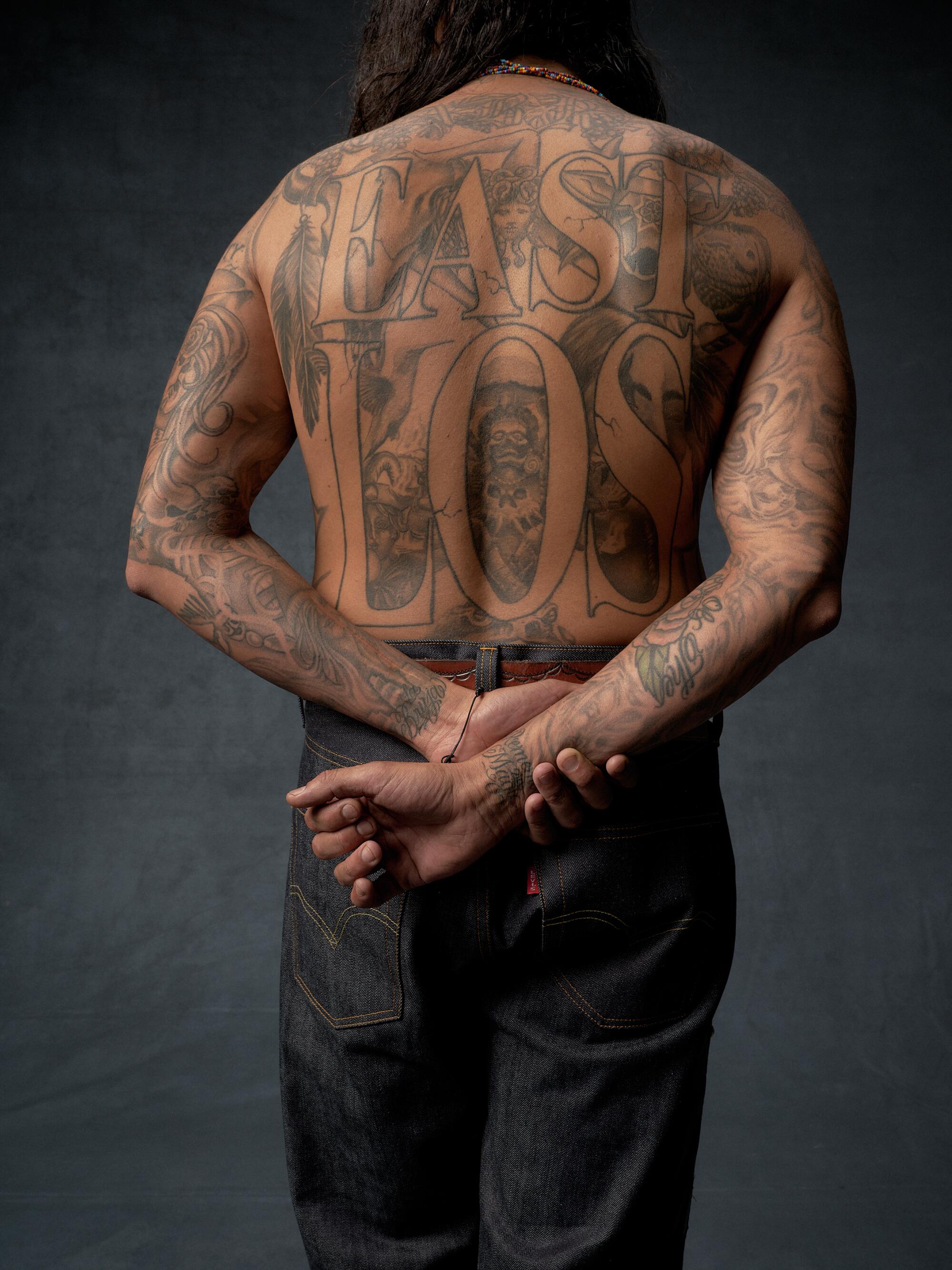
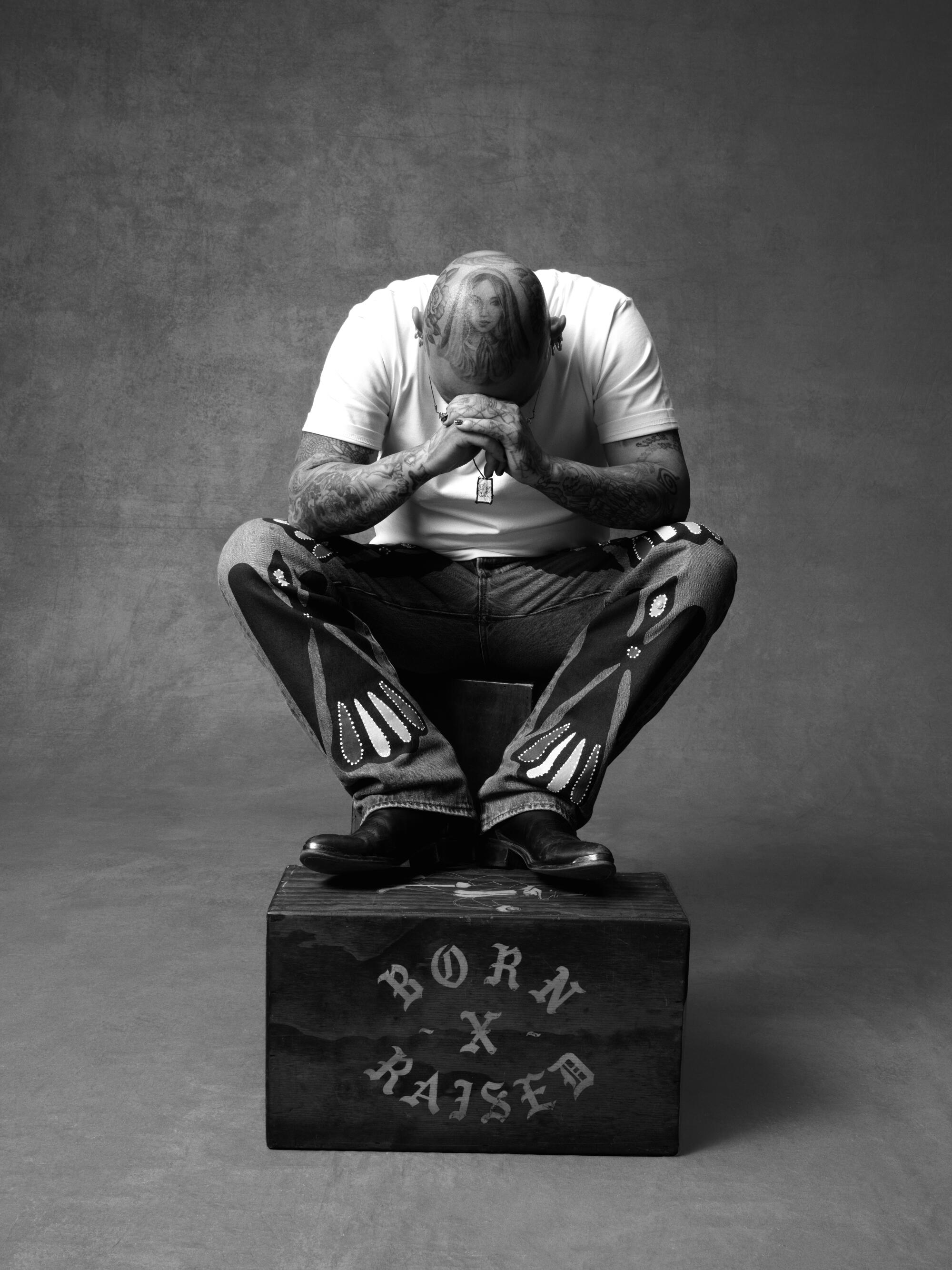
Then he opened his eyes and saw it: Butch’s Levi’s jacket, the one he wore on the regular when Spanto was a kid. A light wash from the ’80s that had been worn down to a buttery texture with holes in it, adorned with patches including the Wampum belt. This is when he knew the collection would be about honoring his father and in turn, honoring his Native culture.
The collection, which drops Friday, June 9, includes the dark selvidge wash jeans, light wash jeans, embroidered trucker jacket, Born X Raised X Levi’s white tee and a zip hoodie. The jeans are adorned with a design inspired by the one that was on the cedar box Butch used for ceremony — one of the only items that survived the crash — printed on the lighter wash and embroidered with leather patchwork on the darker wash. “I tried to take elements of my dad’s style, my grandpa’s style and my mom’s style,” he says. “I tried to take those elements and incorporate that into stuff that we do now.” Through the clothes and campaign, Spanto is paying homage to his Seneca and Apache heritage, to his late father and, because it’s Born X Raised, always L.A. “Being able to fuse these things together, it’s something that I think is very unique and very specific. It’s a part of me.”
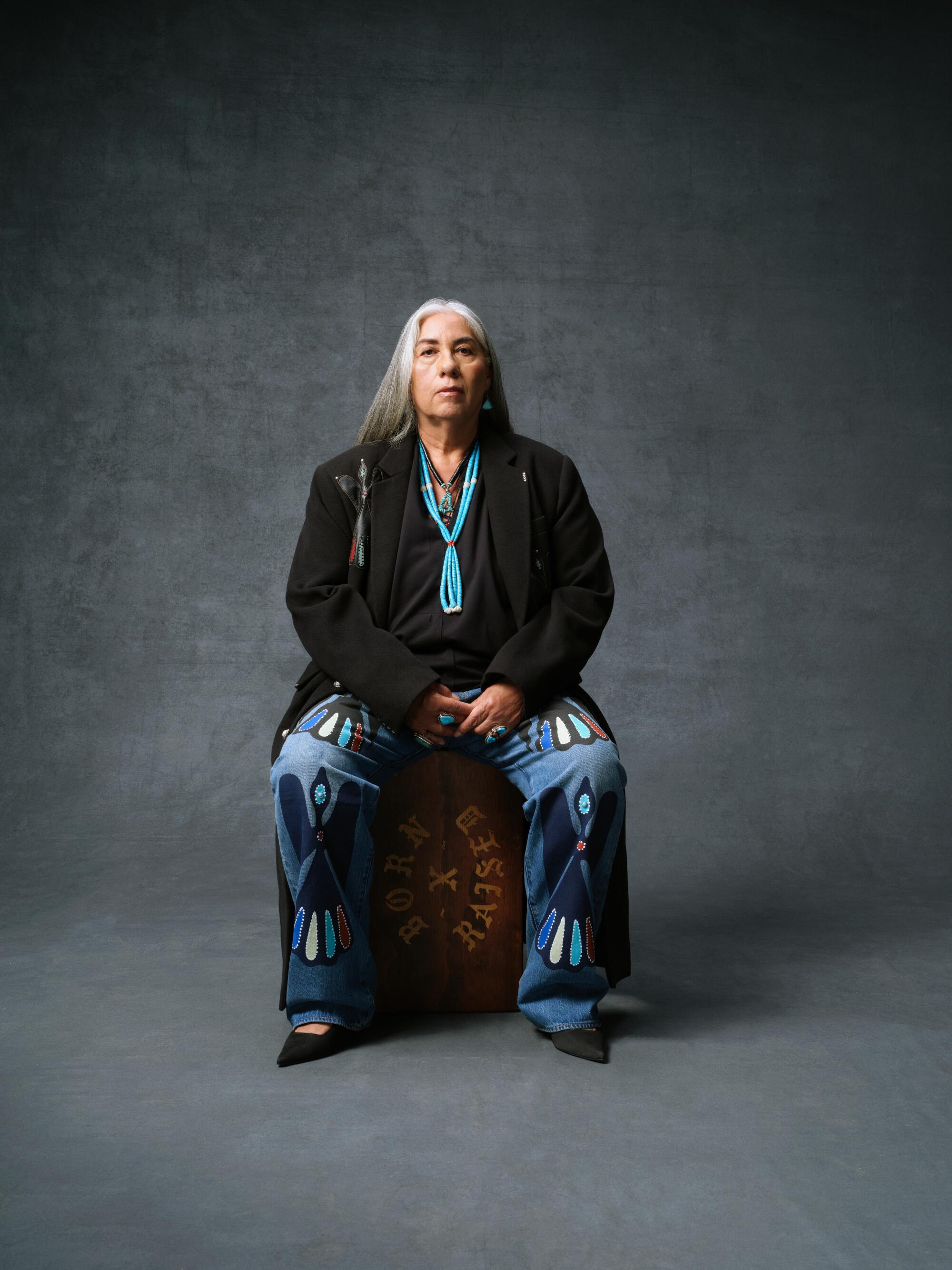
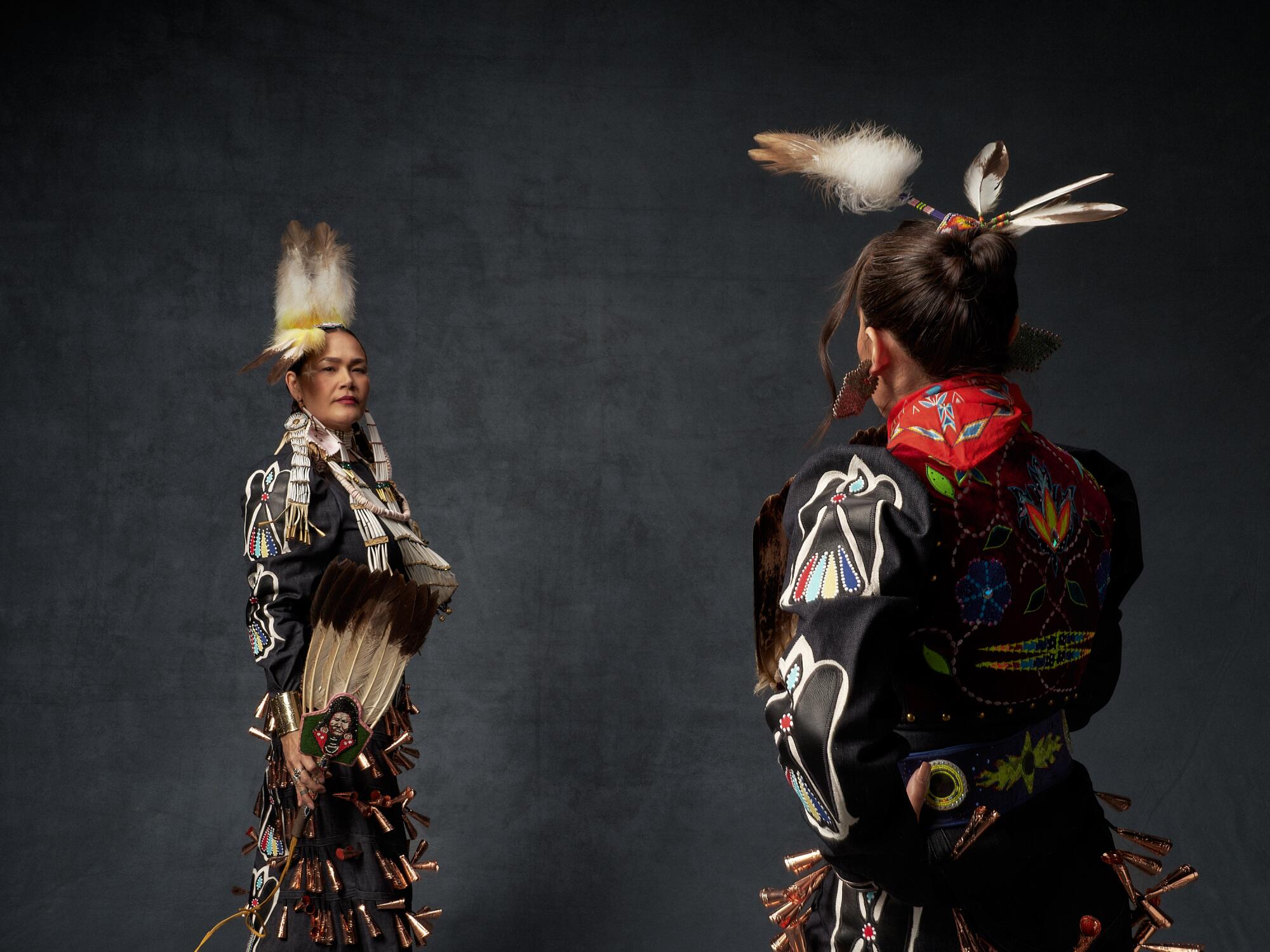
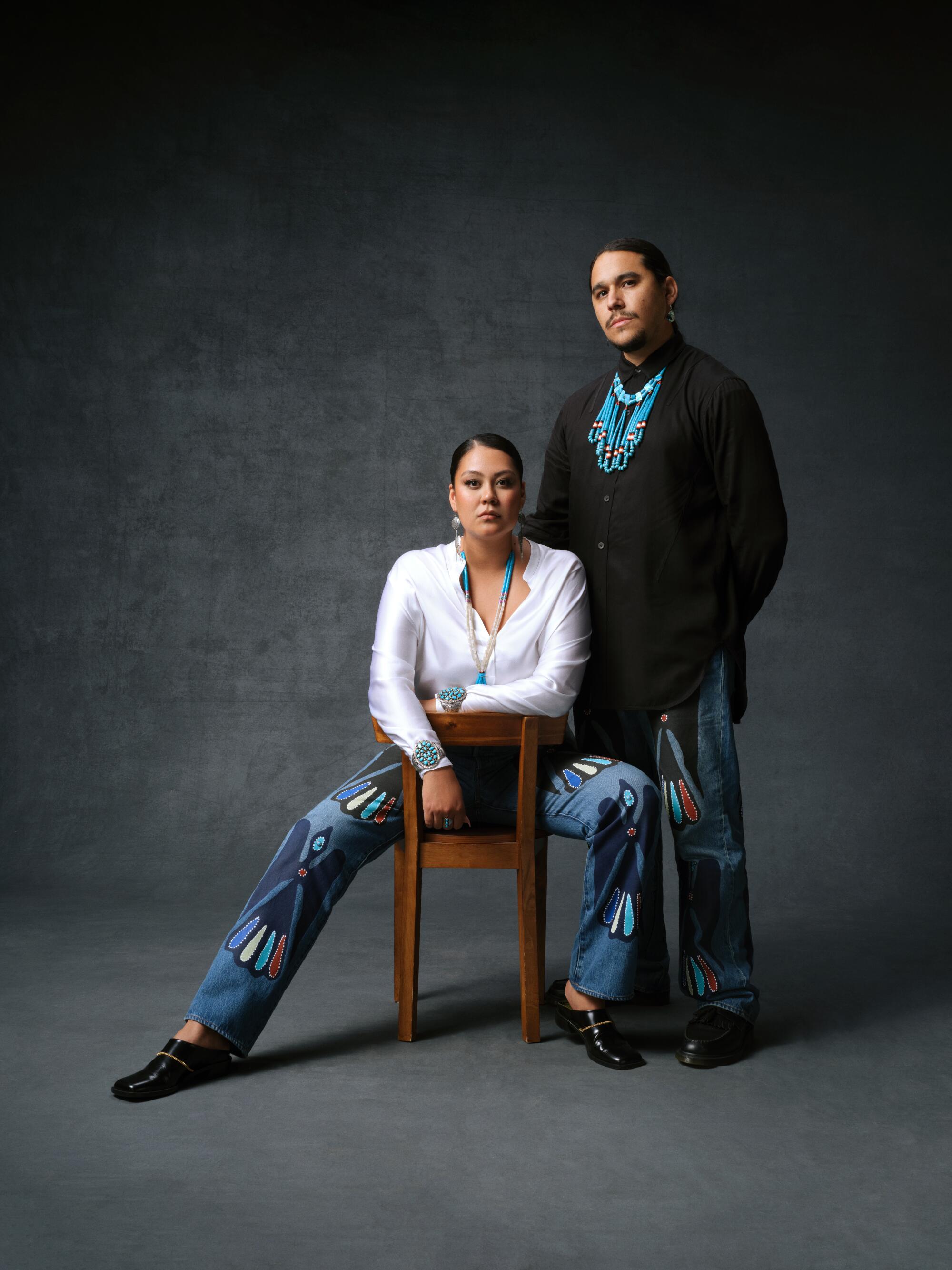
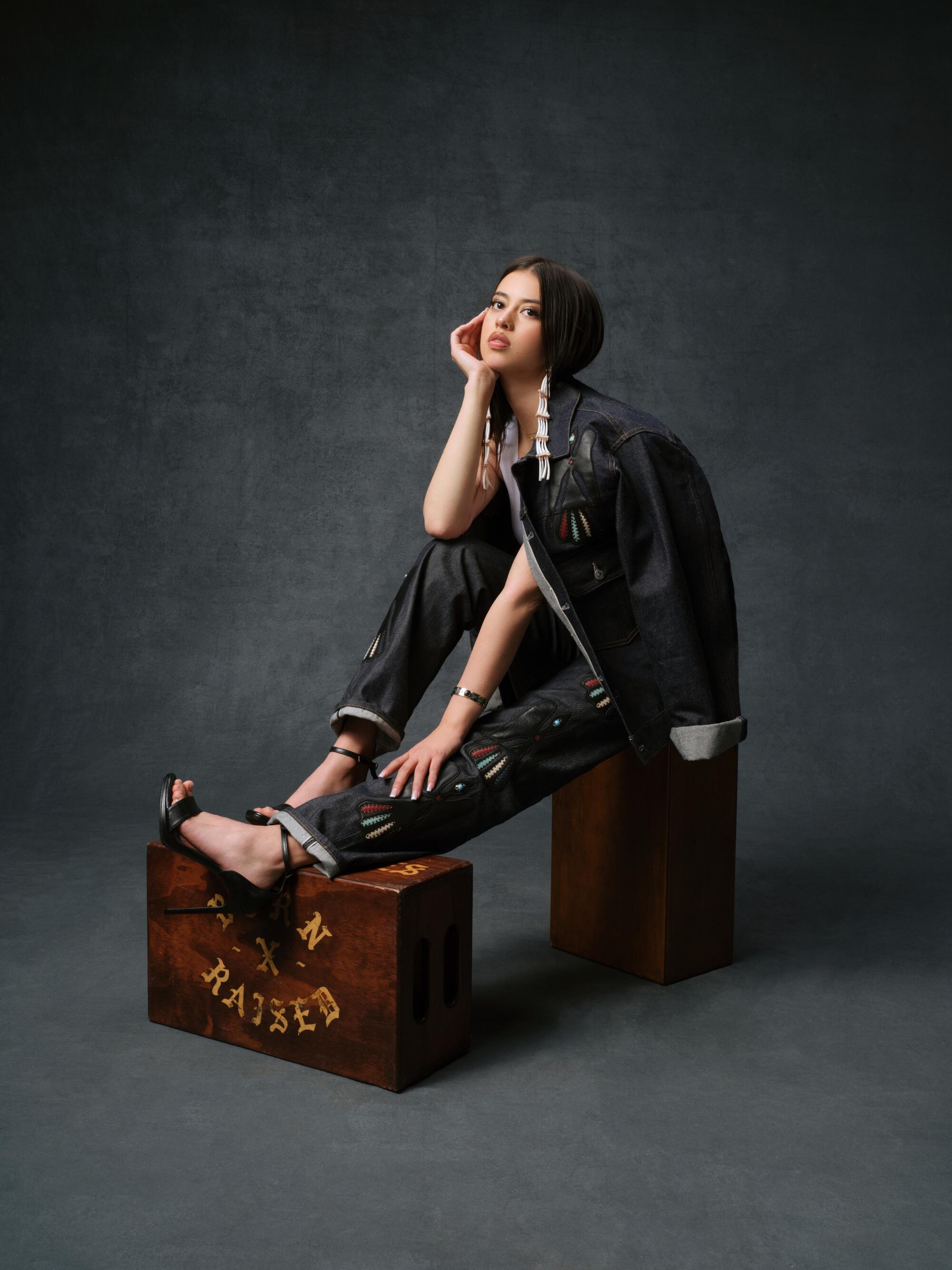
Growing up, Spanto was constantly reminded by family of his Native roots, told to be proud of where he comes from. But being a young kid — at the time more interested in kicking it, drinking 40s, chasing girls and making money — he didn’t know what that meant in practice. His family had lost so many of their Native customs and endured so much generational trauma that it was difficult for him to connect with what that meant. One summer, his mom, who is Apache, sent him to stay with his dad, who was still actively practicing Seneca traditions, so that he could learn. Spanto was wary: This was a man he didn’t know well, despite being his biological father. The two men would take a road trip together to a reservation in Arizona, spending a month there learning about traditional ways. Spanto felt an immediate connection to this way of life. “Instantly,” he says. “I started doing these things and I felt like I was at home. My dad was like, ‘I want you to learn these things about your bloodline and your culture.’ And I was immediately I was enamored by it.”
Spanto and his dad would do this dance for many summers, visiting different reservations across the country, participating in ceremony. In this way, Butch became a teacher. “Then I’d fly back to L.A. when the summer was over and it’s just, it’s gone,” he says. His homies weren’t exactly creating a space for integration, and there were no other Native kids around him or back then even an internet community. Spanto would bounce back and forth between his two cultures — being Native and being from L.A. — for years. “I wanted to try to bridge a gap in between the way I grew up this way, and also the way I grew up this [other] way,” he says. “These are two sides of my life that I was able to mesh together with this project.”
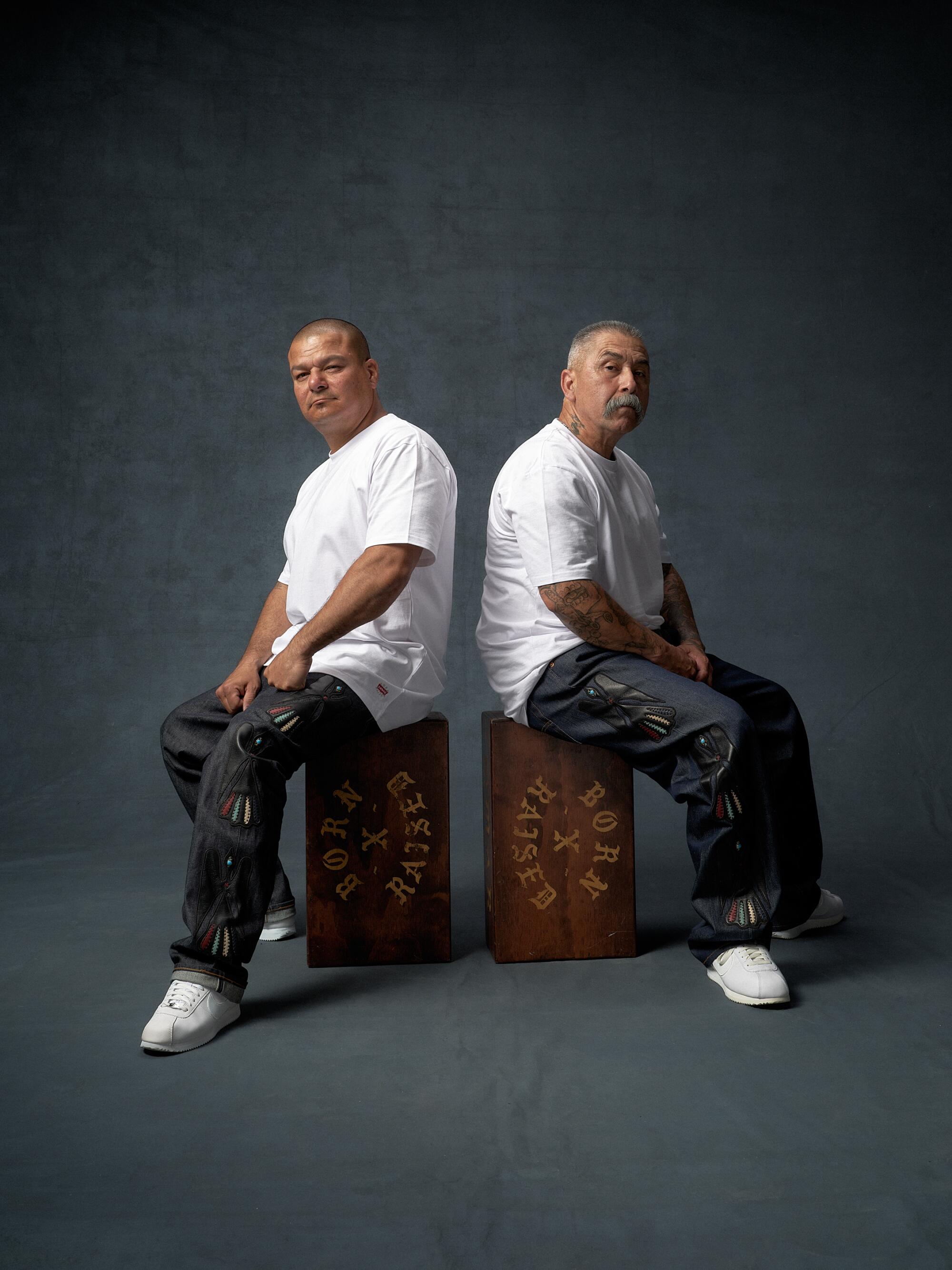
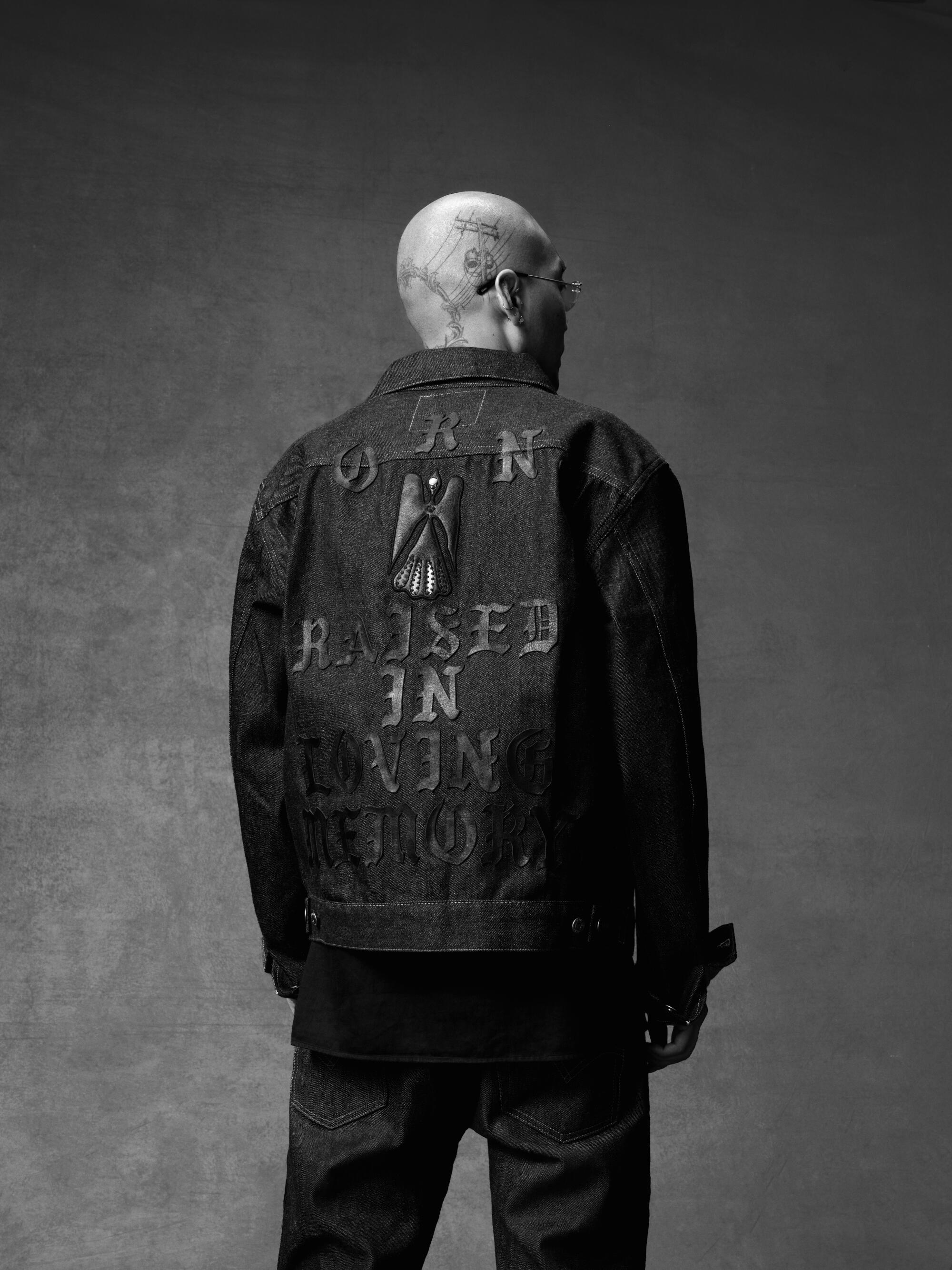
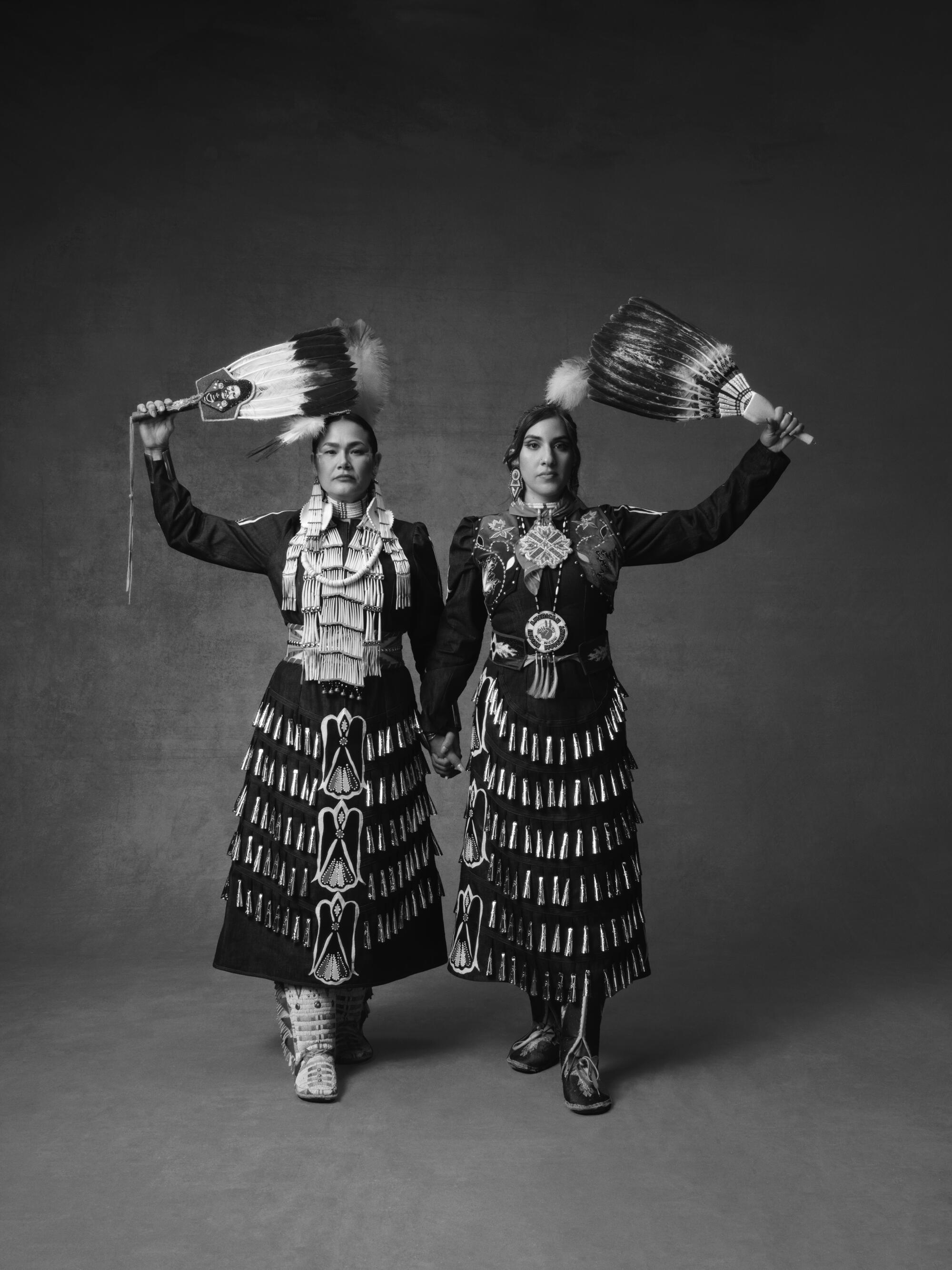
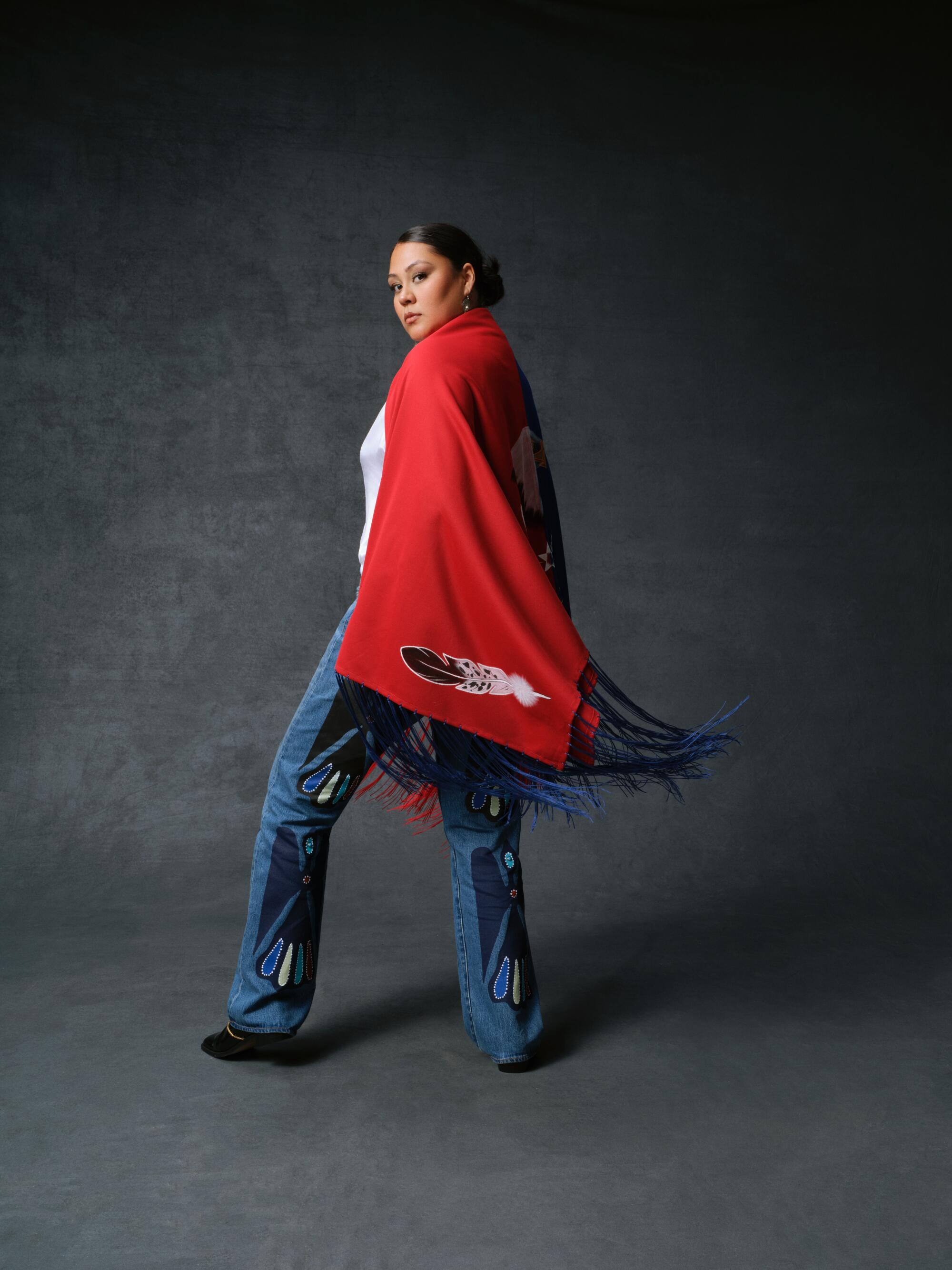
Both worlds — rooted in Spanto’s memories of Butch — come together in the campaign for the collection. It was photographed in studio in L.A., on the White Mountain Apache reservation, on Navajo Nation and in New Mexico. Spanto brought in Native models, including family members; close family friends the Shirley family; the actor Amber Midthunder; film producer Jhane Myers and her daughter, director and writer Peshawn Bread; and former Unity employee Jared Ivins-Massey, who was photographed in front of Spanto’s grandfather’s old house — one of the first housing developments on the White Mountain Apache reservation. Spanto also included his L.A. folks, like the actor Richard Cabral and his homeboy, Sleepy Joe, who just got out of prison after 30 years. “It’s real,” he says. “It’s a part of me. You can can trace it all back. It’s all there.”
So is Butch. His energy and memory is infused into the collection. He always wanted to be famous. He was a musician at heart, the kind of person who never gave up hope that he might make it big. Now his memory lives on in a material way through one of the biggest denim heritage brands in the world. “I want to get him as much light as possible now that he’s gone,” Spanto says.
